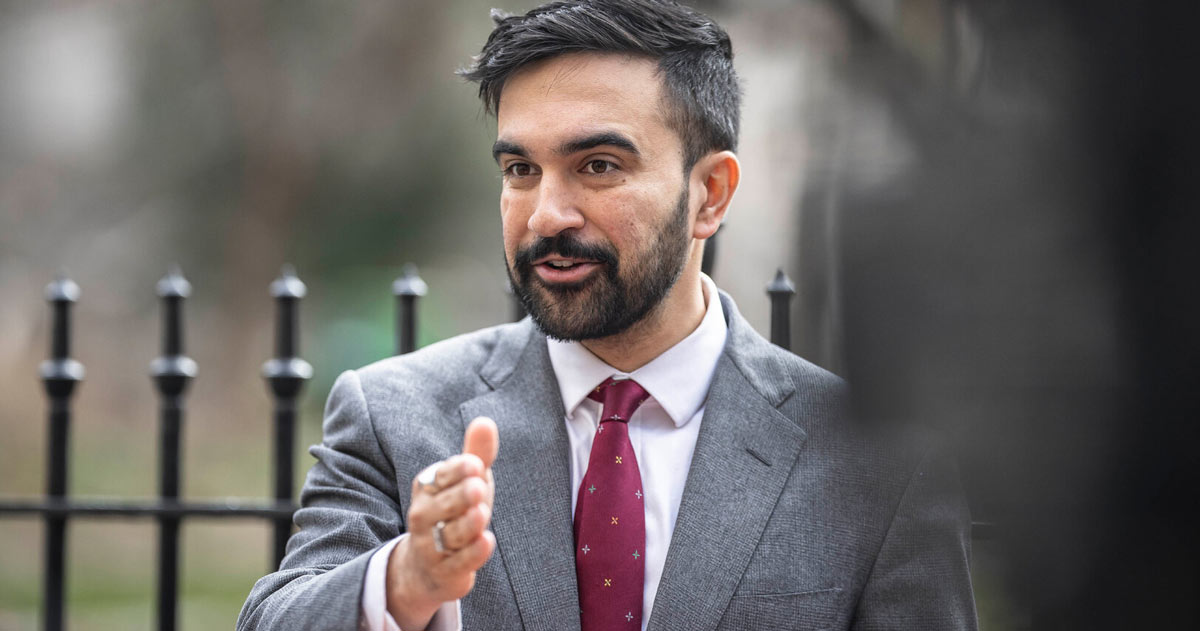The New York Times spent the Fourth of July in damage control mode after liberal readers erupted in outrage over a report detailing controversial racial identification choices made by Zohran Mamdani, the radical Democrat nominee for New York City mayor.
The Times reported Thursday that Mamdani, a self-declared socialist who stunned the political world by clinching the Democratic Party’s nomination, had checked off that he was both “Asian” and “Black or African American” on his 2009 Columbia University application.
Mamdani, who was born in Uganda and is of Indian descent, defended the decision.
“Most college applications don’t have a box for Indian-Ugandans, so I checked multiple boxes trying to capture the fullness of my background,” Mamdani told the Times.
The information came from hacked Columbia University documents obtained by the Times, and the backlash from the Left was swift and furious.
Critics accused the paper of targeting Mamdani and using questionable sources, including an anonymous user identified only by an online alias and described by the Times as “an academic who opposes affirmative action.”
Left-wing media figures immediately slammed the Times for publishing the story.
“Scoop of the century here that a man from Africa with South Asian heritage said so on his college application. They put 3 authors on the byline for this trash fed to them by a eugenicist,” fumed Krystal Ball of “Breaking Points.”
Former CNN anchor Soledad O’Brien labeled the piece “pathetic,” suggesting the Times needed to “hire more multi-racial people so maybe this stuff will make sense to you guys.”
The internal fallout at the Times was just as intense.
“People are really upset,” one Times journalist told Semafor.
Columnist Jamelle Bouie attacked the story in posts on X and even smeared contributing reporter Benjamin Ryan, who led the byline.
Bouie implied that Ryan had “little to no actual brain activity” and mocked him as “one of the biggest dumbasses in journalism.”
Bouie later deleted his posts, admitting they “violated Times social media standards.”
Times columnist Lydia Polgreen defended Mamdani, writing on X:
“I can see why a political young man like Zohran might fill out his college application the way he did.
“Because if you are like me, you struggle to be known in this country.
“Our visual sorting is so simplistic and quite brutal.”
Facing the firestorm, the paper’s assistant managing editor for Standards and Trust, Patrick Healy, issued a public statement defending the report.
“Our reporters obtained information about Mr. Mamdani’s Columbia college application and went to the Mamdani campaign with it,” Healy said.
“When we hear anything of news value, we try to confirm it through direct sources.
“Mr. Mamdani confirmed this information in an interview with The Times.
“We believe Mr. Mamdani’s thinking and decision-making, laid out in his words, was newsworthy.”
Healy also defended using the anonymous source, noting:
“We heard from readers who wanted more detail about this initial source.
“That’s fair feedback.
“We printed his online alias so readers could learn more about the person.”
But the backlash didn’t stop.
Former New York City Mayor Bill de Blasio chimed in, saying:
“The @nytimes continues its self-invalidation tour…
“How many Ivy League degrees does it take for you to figure out Uganda is in Africa?”
Former MSNBC host Keith Olbermann called it an “utter failure,” accusing the paper of “actively campaigning against Mamdani.”
Meanwhile, conservatives slammed the Times for caving to the Left.
“Stop apologizing for saying something critical of a Democrat,” Trump ally Richard Grenell responded on X.
“Your problem is that you have thin-skin and too many lefty readers.
“You aren’t an outlet for everyone — you are an outlet for just the left.”
It was also revealed that the Times rushed the report to avoid being scooped by conservative activist Christopher Rufo.
Rufo confirmed the detail and offered his “kudos” to the paper for publishing it.
This is hardly the first time the Times has buckled under liberal outrage.
In 2020, the paper ignited a firestorm when it ran Sen. Tom Cotton’s op-ed calling for the deployment of federal troops during the “George Floyd” riots.
The backlash resulted in public apologies and staff shakeups.
Former Times columnist Bari Weiss, who resigned in protest and later launched The Free Press, summed up the problem in her resignation letter:
“Twitter has become its ultimate editor.”
“As the ethics and mores of that platform have become those of the paper,” she wrote, “the paper itself has increasingly become a kind of performance space… rather than to allow a curious public to read about the world and then draw their own conclusions.”

Our comment section is restricted to members of the Slay News community only.
To join, create a free account HERE.
If you are already a member, log in HERE.